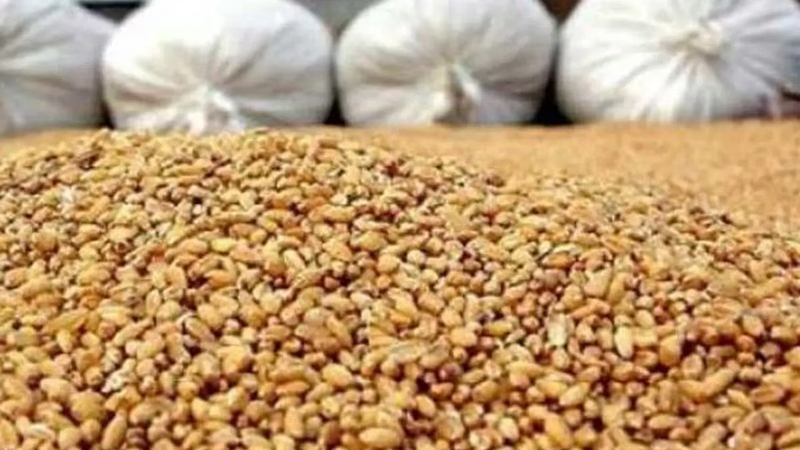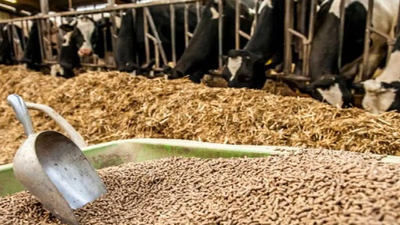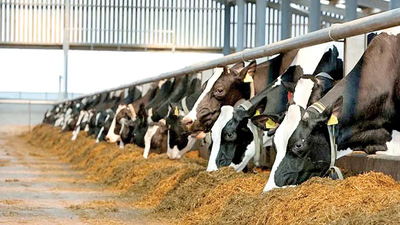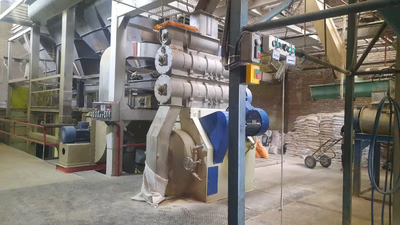
Evaluating animal feed quality through testing methods.
Determining the quality of fodder and animal feed can be done by conducting tests, evaluating the physical and chemical characteristics of food and using available information sources. Conducting chemical tests can help you to determine the quality of fodder and animal feed. These tests include determining the amount of protein, fiber, sugar, fat, vitamins, minerals and other related things. By conducting chemical tests, you can know the amount of nutrient compounds and nutritional value of food sources. Microbiology tests are used to detect the presence of bacteria, fungi and other contaminating microorganisms in fodder and animal feed.
These tests can help you to ensure the health and hygiene of food. Examining the physical characteristics of food such as color, smell, consistency and impurity compounds can indicate their quality. For example, fresh fodder should have a good consistency and be dry and green in color. Studying and using the information sources of experts and reputable institutions in the field of fodder and animal feed quality can also help you in identifying the quality of food ingredients. You can use the guidelines and standards provided by the relevant organizations.
To determine the quality of fodder and animal feed, cooperate with animal husbandry industry experts and relevant consultants. They can help you to explain and guide more accurate ways to determine the quality of forage and feed. Trusting feed vendors is very important, as this trust helps you to ensure that the products purchased are of good quality. Do your research before working with a feed dealer. Check information about the company, experience, required licenses, previous products and reviews from previous customers. This information can help you determine the credibility and capability of the seller.
Use vendors that meet valid certifications and standards. Some common standards in the animal feed industry include ISO 9001, HACCP, GMP and FAMI-QS. These certificates show compliance with quality and health standards. Establishing ongoing relationships with feed vendors can help you build more trust in them. These communications can include visits to the seller's office or factory, personal meetings, telephone conversations, and computer communications. By making these connections, you can easily ask your questions and concerns and get reassurance.
Before starting cooperation, make a complete and detailed contract with the seller. In this contract, the terms of the contract, price, terms of payment, delivery, product quality and any other thing that is important to you should be specified. Insist that they honor the contract and follow the same terms as agreed upon. Before making a larger purchase, you can test feed samples. These tests can include chemical tests, nutritional and physical tests. By conducting tests, you can ensure the quality of the seller's products and know the truth of their claims.
Reviews and feedback that previous customers share about the seller can help you make a decision. Searching for reviews on the Internet, visiting forums, and talking to other ranchers can provide you with useful experiences and opinions about the vendors you are considering. If needed, you can cooperate with independent consultants and experts in the field of animal feed. They can guide you and give you more professional opinions on feed vendors. To build trust in animal feed vendors, thorough research and investigation, use of standards and certifications, establishing ongoing relationships, contractual commitment, testing and reviewing products, and receiving customer feedback are very important.
-

Quality assessment of fodder and animal feed involves various testing methods, including chemical and microbiological analyses. Chemical tests evaluate nutrient content such as protein, fiber, and vitamins, while microbiological tests detect harmful microorganisms. Physical characteristics like color and consistency also indicate quality. Collaborating with industry experts can enhance the accuracy of these assessments. Trusting feed vendors is crucial; thorough research on their credentials, experience, and customer reviews is essential for ensuring product quality. Valid certifications such as ISO 9001 and HACCP signify compliance with health standards. Establishing strong relationships with vendors through regular communication fosters trust. Drafting detailed contracts that outline terms of sale, payment, and product quality is vital to protect interests.
Testing samples before large purchases can confirm the seller"s claims about product quality. Engaging independent consultants can provide additional insights into vendor reliability. Overall, a comprehensive approach involving research, standards adherence, relationship building, contractual agreements, product testing, and feedback collection is necessary for successful procurement in the animal feed market. "
-

Exporting fodder and animal feed requires compliance with local regulations and thorough market research. Understanding the import standards of destination countries is crucial, as these may include health restrictions and packaging requirements. High-quality products must be packaged appropriately, and exporters should choose suitable transportation methods based on product type and shipping costs. Documentation is essential, including commercial invoices and certificates. Building relationships with local importers and utilizing marketing strategies can enhance sales in foreign markets. Challenges such as high transportation costs, competition, cultural differences, financial risks, and political changes must be managed effectively. Exporters should also consider environmental factors that may impact production and logistics. A well-structured export plan that includes financial management is vital for success in the international market.
-

Fodder plays a crucial role in livestock nutrition, with its economic viability influenced by geographical factors, transportation costs, and nutritional needs. Key fodder types include alfalfa, corn, wheat straw, and rice bran. Alfalfa is a high-protein option that can reduce nitrogen fertilizer needs, while corn serves as an affordable energy source. Wheat straw and rice husks are valuable by-products that can be repurposed for animal feed. The balance of these feed types is essential for meeting livestock dietary requirements economically. Export dynamics are affected by production quality, market demand, and competition among countries like the USA, Canada, and Ukraine. Additionally, climate and soil conditions significantly impact fodder production costs and pricing strategies. Effective coordination of these factors can enhance the economic advantages for livestock farmers.
-

Animal feed production and consumption are crucial for the livestock industry in West Asia and the Middle East. The scale of production varies by country, influenced by factors such as livestock industry size, nutritional requirements, and fodder availability. Iran stands out as a significant producer, with a focus on alfalfa, barley, and corn. Turkey also contributes to the region"s feed supply with various fodder products. Saudi Arabia is a major consumer due to its extensive livestock farming, while Oman and the UAE are experiencing increased demand as their livestock industries grow. Qatar faces production limitations and relies heavily on imports to meet its animal feed needs. The interplay between domestic production capabilities and import dependencies shapes the region"s animal feed landscape. Countries like the U.
S. , Canada, Australia, and South Africa are key suppliers of animal feed to Arab nations, which often depend on these imports due to environmental constraints affecting local production. The dynamics of animal feed trade in this region are further influenced by commercial agreements and environmental regulations.




